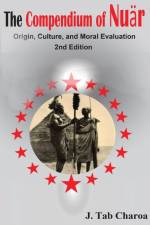av J. Tab Charoa
427
Fr. James Tab Charoa is the Dean of Studies of Theologicum at St. Paul's Major Seminary both Philosophicum and Theologicum Juba-South Sudan. He was ordained a priest for the Archdiocese of Khartoum in 2003. He has pastoral experience in the Archdiocese of Khartoum in Kosti Pastoral Religion. He was appointed by the Sudan Catholic Bishops' Conference as Vice-Rector of St. Paul's Major Seminary Theologicum as from 2010-2014. He was sent to the Catholic University of East Africa as from 2014-2016 where he earned a licentiate in Sacred Theology with a specialization in moral Theology. He was appointed again by the Sudan Catholic Bishops' Conference as a full-time Staff at St. Paul's Major Seminary Theologicum as from 2016-2017. From 2017-2018, he was appointed as Care-Taker Rector of St. Paul's Major Seminary Theologicum by the Sudan Catholic Bishops' Conference. After the reunification of both Philosophicum and Theologicum in 2019, he was appointed as the Dean of Studies of Theologicum at St. Paul's Major Seminary. Fr. Tab has written a good number of books relevant to his field of moral theology such as "Ethics of Human Sexuality: A Call for Chastity in Christian Families, Nairobi, CUEA Press, 2017, Key Principles of the Catholic Social Teaching: Their Relevance to the African World View, Nairobi, CUEA Press, 2019 and other books. As about the Compendium of Nuär Origin, Culture, and Moral Evaluation, the Nuär people, usually, referred to as Nuer, are one of the largest ethnic groups in the Republic of South Sudan. They can be metaphorically considered as the right arm of the new nation. If ever you want to know more about these noble and God-fearing people, their history, lifestyle, geographical and demographic surroundings and cultural practices, Father James Tab Charoa has said it all in this book. I had heard and learned much about the Nuär people over the years, having studied, worked and lived with some of them. I read many books written about the Nuär by prominent anthropologists such as E. Evans-Pritchard and P.P. Howell (on Nuer marriage), and Douglas H. Johnson (on Nuer prophets). These writers have laid good foundations on which any research on Nuär people can be further developed. Whereas I had gotten it all about the Nuär people, I came to know that much more was still to come which the author has now completed in his book.

